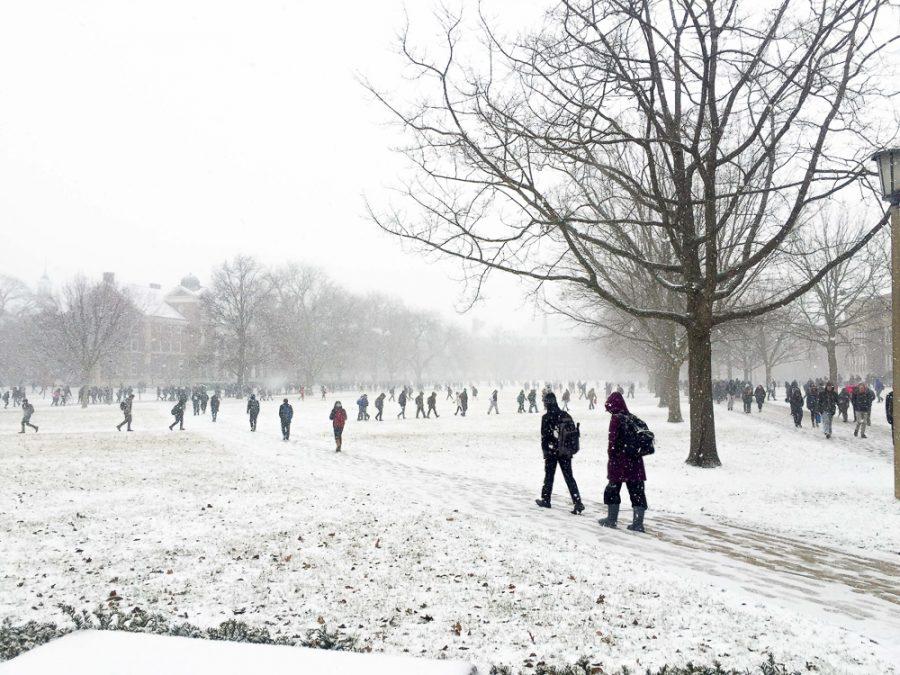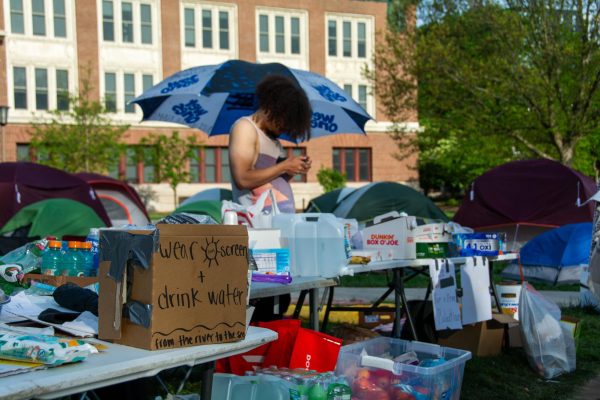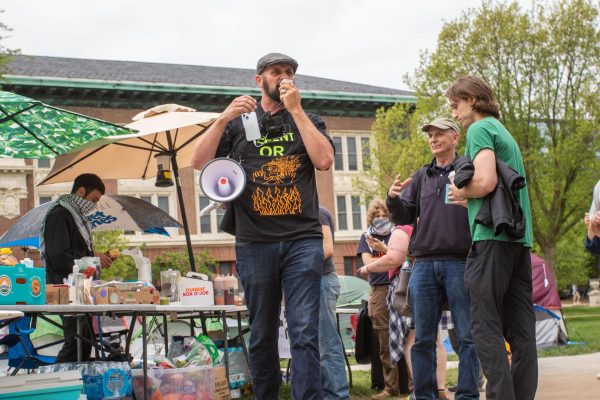Colder, wetter weather to follow fourth wettest February-March on Illinois record
Students walk on the Quad in the snow on Wednesday, Feb. 8th, 2017.
April 7, 2018
With an average precipitation of 8.69 inches, February to March this year was the fourth wettest on Illinois’ record. The wettest was in 1898, with 8.96 inches, according to a University press release.
Jim Angel, state climatologist, said the weather during March and April is unusual, because it is so cold and wet.
“The first four days of April are about as variable as you can get in Illinois, with four inches of snow on April 1, a record-low temperature of 14 degrees on April 2, rapid melt of snow on April 2 and thunderstorms on April 3,” Angel said in an email.
Angel said the forecast for the rest of April is colder and wetter than normal.
“I think it will be a while before we get to enjoy true spring weather,” Angel said.
Get The Daily Illini in your inbox!
For March, the average precipitation was 4.03 inches, almost half of the largest monthly precipitation. According to the press release, it was 1.07 inches above normal. The statewide average temperature was also below normal.
“It is a challenge to dress for the weather since it is so highly variable,” Angel said.
He said it is important to remember that the area is now in the heart of severe weather such as severe thunderstorms, tornadoes and hail, so people should keep an eye on the weather forecast and know where to go for safe shelter.
The National Weather Service’s outlook for April is an increased chance of below-normal temperatures and above-normal precipitation for Illinois and the Midwest in general.
Angel said the biggest impact in the Midwest community will be that farmers will face significant delays in planting their crops due to the cold and wet weather. He said gardeners will also be frustrated.
Angel also said people should know this is weather, not climate, so it does not disprove global warming.
“While we have been cold for the past several weeks in the central U.S., the rest of the world has warmed,” Angel said.







